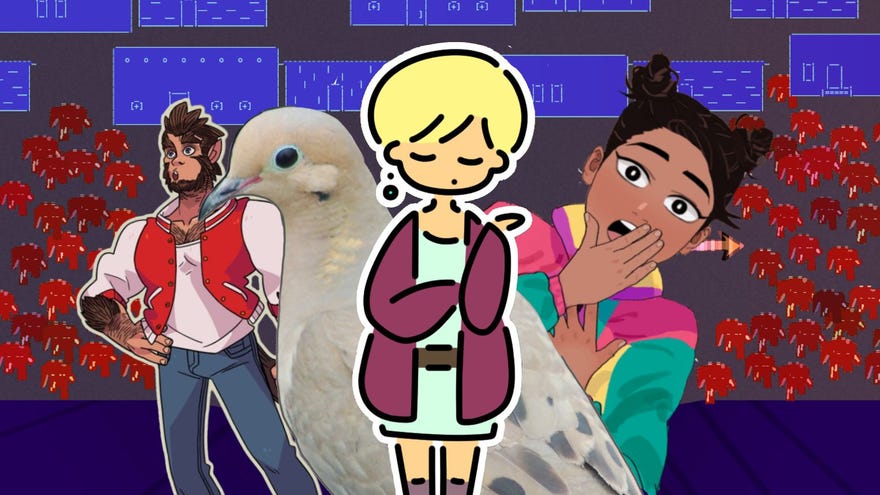The 10 best visual novels on PC
Recommended reading
For those of us who love gaming and reading, visual novels represent the best of both worlds, which is why we've put together this list of the 10 best visual novels you can play on PC right now. The term "visual novel" is a broad church. You can tell almost any story in this medium, which means most visual novels are a lot like regular novels in that sense. Romance and mystery are among the more popular genres, but search for "visual novel" on your favourite PC gaming storefront and you'll find a bit of everything, really (especially once you've filtered out all the adult games). So sit back and relax with one of our best visual novel recommendations. The only critical damage you're likely to take from these games are to your emotions — but that can be painful too, so don't say I didn't warn you!
The best visual novels on PC
In such a wide-reaching genre, no list is ever going to please everybody. So what I've put together below is a list combining personal favourites with undeniable classics (and, admittedly, many are both, since in my experience classics tend to be regarded that way for a reason). But if I've missed your favourite, be sure to chime in with your recommendation in the comments! Who knows, your case may be so compellingly well-put that I regretfully boot one of the games below to make room for your pick next time.
- Ace Attorney Turnabout Collection
- Danganronpa: Trigger Happy Havoc
- Doki Doki Literature Club Plus
- Paranormasight: The Seven Mysteries Of Honjo
- Extreme Meatpunks Forever
- A Year Of Springs
- Butterfly Soup
- Monster Prom
- Clannad
- Ukraine War Stories
Ace Attorney Turnabout Collection
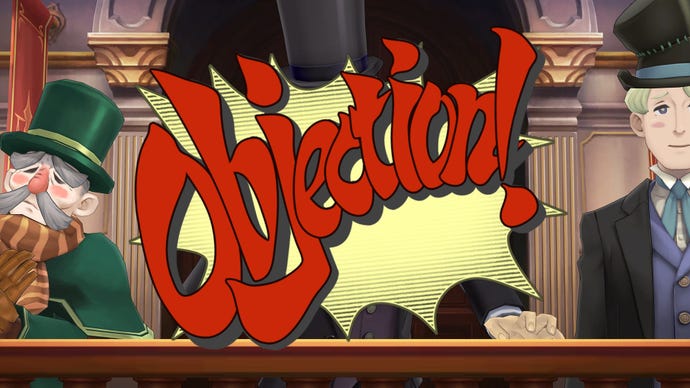
Capcom's long-running courtroom dramedy franchise has 11 major entries under its belt, though only five are thus far available on PC. Still, the good news is that you can nab all of those in the bundle known as the Ace Attorney Turnabout Collection. Bringing together the 2019 remaster of the original Phoenix Wright: Ace Attorney Trilogy with 2021's long-awaited two-part localisation of The Great Ace Attorney Chronicles, this bumper collection might actually be the most delightful recommendation I could possibly make.
Newbie defence lawyer Phoenix Wright has a lot to contend with in his eponymous trilogy: the judge doesn't respect him, his assistant is a spirit medium rather than a qualified paralegal, and it seems like everyone he's ever met keeps getting accused of murder. Not to mention that a new law demands all trials must be completed within three days of the crime, and the defence team needs to investigate on behalf of their client if there's to be any hope of a "not guilty" verdict. Oh, and the childhood best friend he's desperate to reconnect with is now his nemesis as the district's hot-shot prosecutor.
Rewinding 120 years into the past, The Great Ace Attorney Chronicles sees Phoenix's ancestor Ryunosuke Naruhodo facing a similar set of hardships. Ryunosuke arrives in Victorian London as an exchange student from his native Japan, but with the added wrinkle that a barmy Sherlock Holmes expy won't stop "helping" him in his investigations. In both timelines, the result is hijinks aplenty with non-stop puns, lightly point-and-click inspired logic puzzles, a maze of pop culture references, yet more puns, and one of the hands-down campest settings ever committed to fiction.
Danganronpa: Trigger Happy Havoc
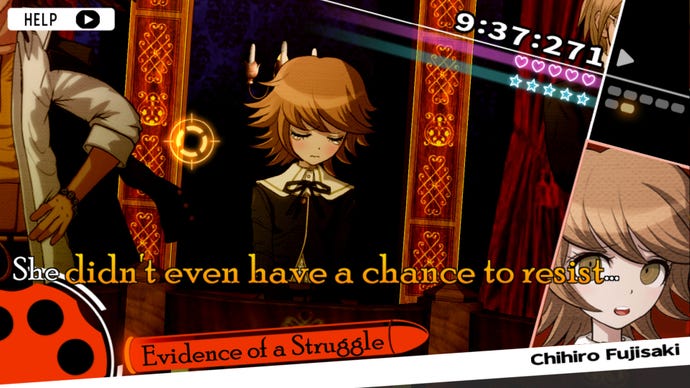
A scholarship student at an elite high school is about to have a very bad first day. Danganronpa: Trigger Happy Havoc follows Makoto Naegi as he embarks on his educational journey at Hope's Peak Academy, a school which only admits students who are already at the very top of their chosen field. Makoto, however, is a painfully average guy who just won a luck-based lottery for admission.
But no sooner does Makoto step through the front door than he passes out, and wakes up in a garish nightmare version of the academy with no hope of escape. At which point the "new headmaster" — a two-faced Care Bear named Monokuma — informs Makoto and his classmates that they can either accept their fate to live out their lives right there in the school, or begin a brutal yet stealthy killing game to earn the right to "graduate" and re-enter the world.
If you can forgive Danganronpa: Trigger Happy Havoc for having one of the most bland anime boy protagonists of all time, you'll find yourself completely drawn in by the supporting cast. These socially inept but eventually lovable oddballs specialise in such areas as being "the Ultimate Moral Compass" and "the Ultimate Clairvoyant", so you know there's never going to be a dull moment as 15 different extreme teen archetypes spark off each other. The murder mysteries are solid too, if a touch inconsistent: don't expect Agatha Christie every time, as key clues are signposted with insulting obviousness in one case only to be withheld for the sake of a shock reveal in the next. Getting to know the characters and uncover the overarching mystery is well worth a few vexatious moments along the way, though.
Doki Doki Literature Club Plus
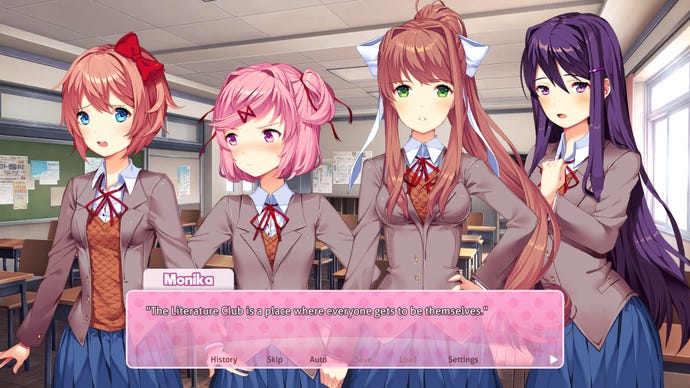
Let's be clear: 2017's Doki Doki Literature Club! is a great visual novel — not to mention a notorious one — but not a title I'd necessarily consider an all-time top 10 candidate on its own. But we're talking about Doki Doki Literature Club Plus, the expanded re-release from 2021, and clearly I do consider this version worthy of inclusion, because… well… I've included it.
I'll attempt a light touch when describing the original DDLC on the off-chance that you haven't yet been spoiled for every minute of its four-hour story. Doki Doki Literature Club! is a pastel-saccharine bishoujo dating sim. You play as an unremarkable teenager who finds himself the only boy in an after-school club attended by four cute female classmates. Multiple-choice romance ensues. Except it doesn't really, because this is actually a horror game.
It's good, but what makes DDLC+ even better is that it builds on the original's twists, while also managing to deliver a surprising amount of fanservice-y character development for the iconic quartet. It's quite the crowd-pleaser, further setting up the wider weird world hinted at by the freeware base game, but also giving you a glimpse into an alternate timeline where the girls got to just enjoy their books and bildungsromans in relative peace. That can't have been an easy line to walk, but Team Salvato have pulled it off with style. If you've never played DDLC you should probably try the free version first to see if you like it; but if you find yourself suitably charmed, this expanded version is well worth your time (and money).
Paranormasight: The Seven Mysteries Of Honjo
.jpg?width=690&quality=80&format=jpg&auto=webp)
I'm usually reluctant to include brand-new games on a bestest-best list, recency bias being what it is. But so help me, Paranormasight has won over so many hearts and minds in the RPS Treehouse that to leave it out feels criminal! Many of the best horror visual novels have a tendency to run long, so if you're new to the genre, Paranormasight is a perfect starting point. Clocking in at what I promise is a comparatively svelte 12 hours, nothing is wasted in this eerie tale of the obsessive lengths people will go to in the name of love, or else in search of power.
In a tale as old as time, an ordinary young man in 1980s Tokyo who's been thinking about settling down meets a nice girl-next-door type while taking a break at the local park. Yoko seems steady as a rock in every aspect of her character but one: she has an intense interest in the paranormal. By the third or fourth date, our hero Shogo is waking up in the park at 1am with a slight case of amnesia and the distinct feeling that they've been ghost hunting together.
Yoko is particularly eager to investigate rumours doing the rounds of a so-called Rite of Resurrection. But there are more ghost stories connected to the case: those of the Seven Mysteries of Honjo, which may be some kind of prerequisite to perform the rite. Naturally, there are those who desperately want to unravel the mysteries, and others who are just as eager to control access to the rite — and aren't afraid to sling a few curses around to keep their secrets safe. Soon our naïve spooky sweethearts are in over their heads, and asking themselves the question: "How far would you go to bring someone back from the dead?"
Extreme Meatpunks Forever
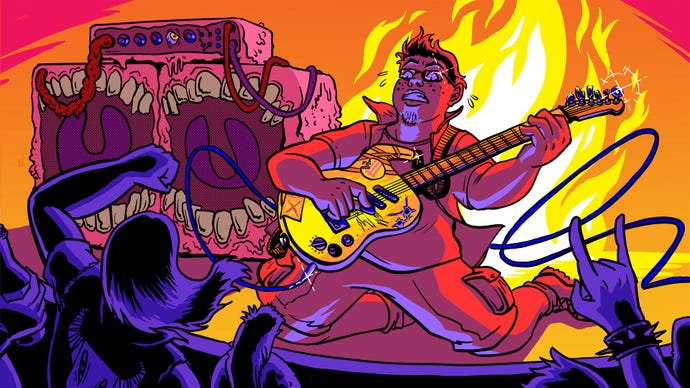
Indie dev Heather Flowers describes Extreme Meatpunks Forever as being about "four gay disasters beating up neo-nazis in giant robots made of meat". Like many modern visual novels, Extreme Meatpunks Forever resists being pigeon-holed by its primary genre, and features top-down mech brawler sections amid the more traditional scenes where you advance through illustrated dialogue at your own pace. Don't let the prospect of a difficulty spike put you off, though: there's really not that much to get to grips with mechanically, and your main activity will still be spending time getting to know your quartet of playable characters as they snark a lot, maybe flirt a little, and plan the next steps in the downfall of fascism.
A second season of Extreme Meatpunks Forever debuted in 2020, with our heroes on a new quest: to steal back the sun from wherever it's disappeared to. Treated as a continuous duology, it's a story of hope, anger, victories, and setbacks, all revolving around a dual core of punk idealism and meat mechs tenderising each other. Here's to a season three.
A Year Of Springs
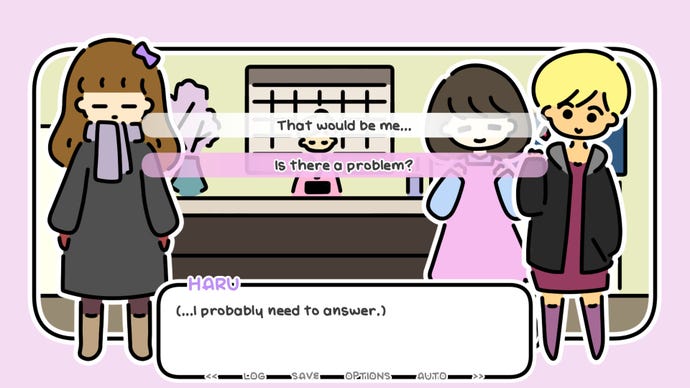
A Year Of Springs is a trilogy of very short visual novels by solo indie dev npckc. You might have heard of the first game — One Night, Hot Springs — since it very quickly gained a loyal following when it was released back in 2018. It tells the story of Haru, a young Japanese woman, on her first night out with friends at a hot springs since coming out as trans. The player is tasked with helping Haru navigate a public amenity with single-gender spaces, and the choice she repeatedly faces between accepting misgendering or risking drawing attention to herself is truly eye-opening for someone who's never experienced that first-hand.
Despite its emotive subject matter, One Night, Hot Springs is also noteworthy for its adorable art style, relaxing atmosphere, and the uplifting relationship between Haru, her old friend Manami, and new acquaintance Erika. The two follow-up stories in the trilogy — Last Day Of Spring and Spring Leaves No Flowers — switch perspectives to each of the other women in turn as they learn more about themselves and each other. All three protagonists are queer women, although their individual identities and perspectives are very different, and the trilogy as a whole focuses on the challenges that LGBTQ+ people face living in modern day Japan.
It bears repeating that A Year Of Springs is anything but a downer. Haru, Erika, and Manami all find affirmation as they come to better understand their individual identities, as well as in the strength of their friendship. You can play the first game for free or nab the whole trilogy for a fiver, and each chapter can be completed in well under an hour. It really is one of those "you'll laugh, you'll cry, you'll learn" situations, and one nobody should miss.
Butterfly Soup
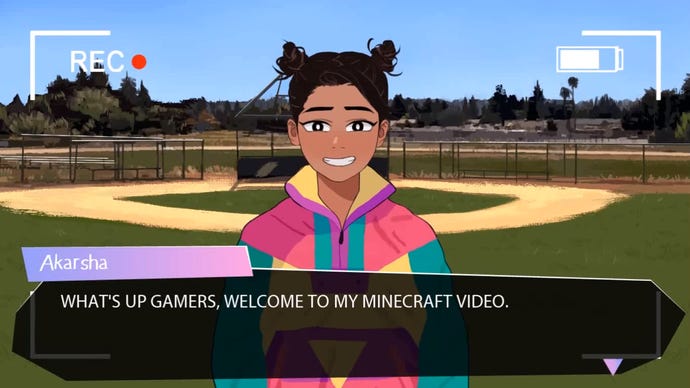
Butterfly Soup follows the lives of four Asian-American teenage girls — Diya, Noelle, Akarsha, and Min-Seo — living in the California Bay Area in 2008, during the vote on Proposition 8 which sought to ban same-sex marriage in the state. While not strictly autobiographical, developer Brianna Lei drew on many of her own experiences in writing the story, and it shows in the undeniable authenticity of the girls' voices, and of the community that surrounds them.
Despite the direct impact the surrounding events could have on their futures — as Lei puts it "Harold, they're lesbians" (except for Akarsha, who's bisexual) — our protagonists remain resolutely concerned with being teenagers first and foremost. All four end up joining their high school baseball team, and that's what occupies most of their energy. Well, that and the blossoming romance between Diya and Min which provides the central plot, even as each of the girls stars in her own chapter.
It's hard to find a game that has as much personality as Butterfly Soup. The characters are completely gawky teen girls who get into absurd shenanigans, with layered story arcs that intertwine with one another. They're finding themselves, and figuring out ways to express themselves as they awkwardly grow into adults. Everyone should play Butterfly Soup. Its pay-what-you-want on Itch.io, so there's no excuse not to.
Monster Prom
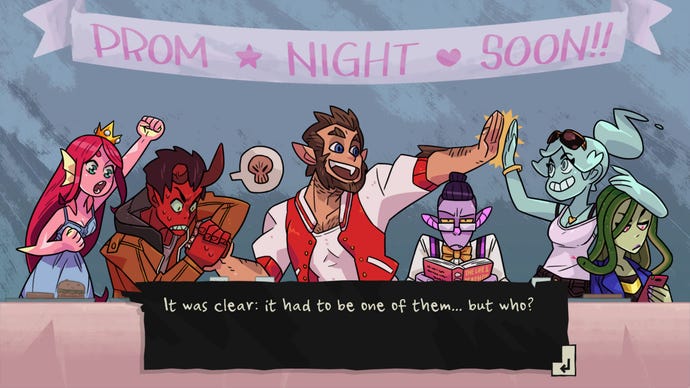
Some visual novels go in for obliqueness in their titles, others go for a pun. Monster Prom, on the other hand, does exactly what it says on the tin. Transporting you to Spooky High School three weeks before the end-of-year dance, your cool-loser protagonist has set their heart on asking out one of the popular kids at the last minute. The twist (and you might have seen this coming) is that everyone is both a high school archetype and a monster. It's like the Breakfast Club got run through a golden age horror filter at Universal Studios.
What elevates Monster Prom from a fun diversion to one of the best visual novels out there is the quality of the writing. Across multiple free base game updates, a chunky story DLC, and now several sequels, it's become apparent that the creative team love their characters, and take utter delight in expanding their lore. It might have begun life as a story about horny young adults trying to get their chosen love interest's best ending in order to unlock a tastefully nude CG, but Monster Prom very quickly became a character-driven coming-of-age urban fantasy comedy telling a much broader range of stories. Furthermore, Monster Prom is the only game on this list to officially support multiplayer, which is quite the rarity in visual novels, allowing up to four players to wingman or sabotage each other.
Clannad
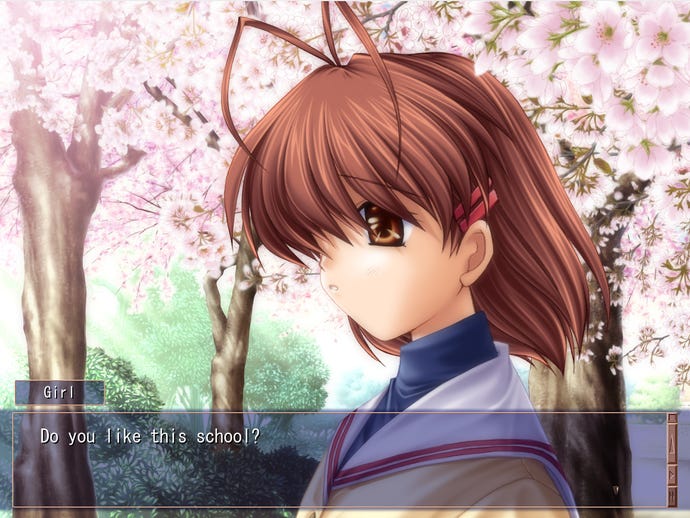
From a purely objective standpoint, this list would be incomplete without Clannad. Lauded as one of the best visual novels ever made, Clannad isn't quite the oldest game on this list — the original Ace Attorney trilogy predates it — but that its popularity is still going strong after nearly 20 years is a testament to how much it resonates with players. Although the visual novel itself wasn't officially localised outside of Japan until 2015, the popularity of Clannad's anime adaptation helped the genre to catch on in the west, so it really can be considered a foundational text for many of the newer games featured here.
The core story of Clannad follows Tomoya Okazaki, a troubled high school student with a difficult home life, who finds renewed enthusiasm and purpose in helping a chronically ill classmate revive their school's drama club. What seems at first like a fairly straightforward harem game (Tomoya solves a girl's problem, they grow closer, the girl joins the ranks of the drama club) takes an unexpected turn when the action jumps forward several years. The story now centres on Tomoya's struggles as a bereaved single parent to a young child, as he desperately tries to avoid repeating his own father's mistakes. It's quite the tonal shift, and there's more to come if you want to unlock the game's true ending.
Ukraine War Stories
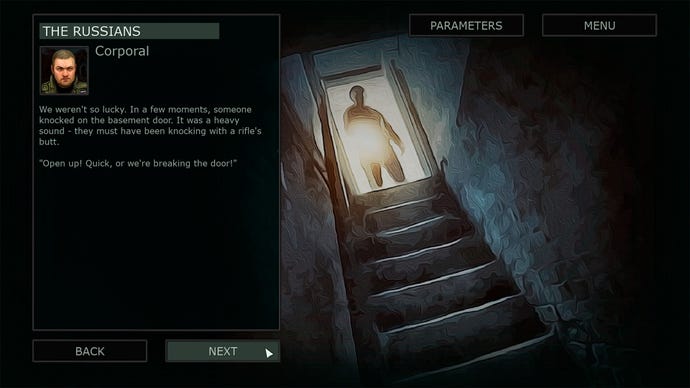
This is a hard game to recommend, but an even harder one to leave off the list. In an ideal world, Ukraine War Stories wouldn't have to exist, but we do not live in an ideal world. Starni Games built their reputation on their Strategic Mind series of hardcore TBT games inspired by real-world military history, but this Kyiv-based studio have understandably broadened their output of late.
This three-part visual novel tells some incredibly personal stories of the Russian invasion of Ukraine, as experienced by civilians in Kyiv in the spring of 2022. Again, it would be nice to live in a world where the best visual novels to play this year were all risque dating sims and bizarre murder mysteries, but Ukraine War Stories makes a compelling case for art and entertainment as an educational tools, helping us to build empathy in ways that the news can't always convey.
Given its short turnaround time and the circumstances under which it was produced, Ukraine War Stories is bare-bones as a piece of interactive fiction. But with a beautiful art style and vital message to convey, it's a timely and important story; given that it's free to play on Steam, it's well worth investing three hours of your time, especially if you feel that you could stand to learn more about the war in Ukraine.
Off the list
Here's every game that has featured on past iterations of this list, with links to all our coverage of them elsewhere on the site:
- Dream Daddy: A Dad Dating Simulator
- Emily Is Away Too
- Hatoful Boyfriend
- Heaven Will Be Mine
- The Letter
- Long Live The Queen
- Umineko When They Cry - Question Arcs
- VA-11 HALL-A
This doesn't mean that we don't still love these games, mind you, or that they won't be featured here again in the future! But there are loads of great visual novels out there, and it's more fun to change things up, as well as to highlight the ones we're really into right now.
